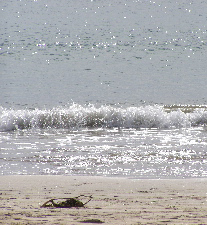poem of the past
To wit
When does reality begin its end
When the mind reaches out to in
Sides reflect mirrors upon mirrored cliché
Aware hyperaware selfaware mocking protection
What we know we know we don’t
Another cliché: I’ve forgotten so much I’ll never know
She drove herself to distraction and he rode shotgun
Funny that, the passenger along for the ride propels the ride in his seat
Did the shotgun contribute to the menace
Was the menace real, or imagined, at all?
Another says, the spiral engages, if it is believed to be real, it’s affect is just as real
Or is that effect – the artist’s pretension is an affect
Well, he was along for the ride and then she crashed
Crashed hard like the waves he walked into
Or ebbed slow like the small tide licks upon the shore
How far did he have to swim to get to the end?
Some say he didn’t swim at all
And argue whether the fishermen caught or found him out
It’s all semantics in the end, isn’t it, and that’s where it began
Words have meaning upon meaning but ultimately meaningless
Does the conscious choice to end bestow meaning upon anything, is it a vain hope
That putting the period to the sentence will make it understood?
Whereas letting life continue to unravel means there is a chance nothing will be known,
Nothing will have meaning
I wonder, at the top of the stairs, did she see clearly, what she should have finally said
Oh, too late, so late, too little –
He found her a crumpled note
And folded his clothes neatly in a pile, everything laid out by the shore
Let the waves claim him, salty water
Reflecting the sun and sky above
It’s another mirror, another cliché, walking into the biggest mystery going
A self perpetrating, neverending cycle claims its own.

Background
Gothamist’s collection of links on the Blake/Duncan suicides
LA Weekly’s protrait of the artist’s decline, with further links to other sources
The Wit of the Staircase – Theresa Duncan’s blog